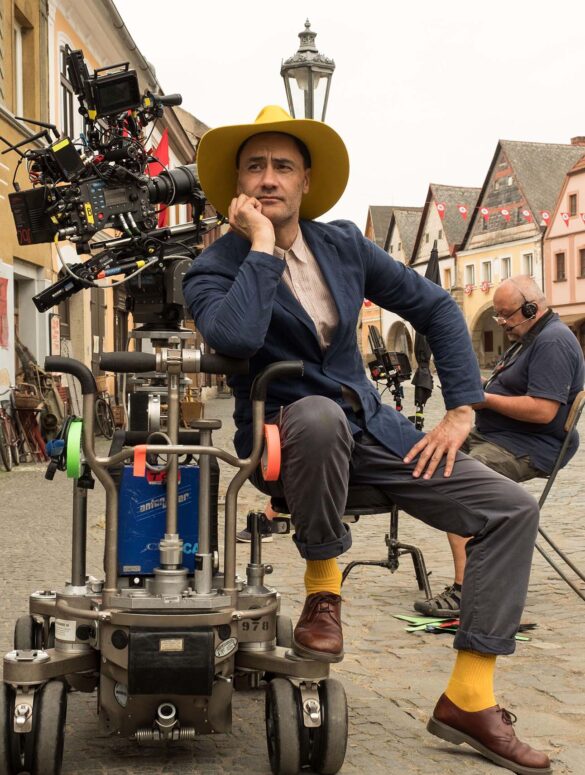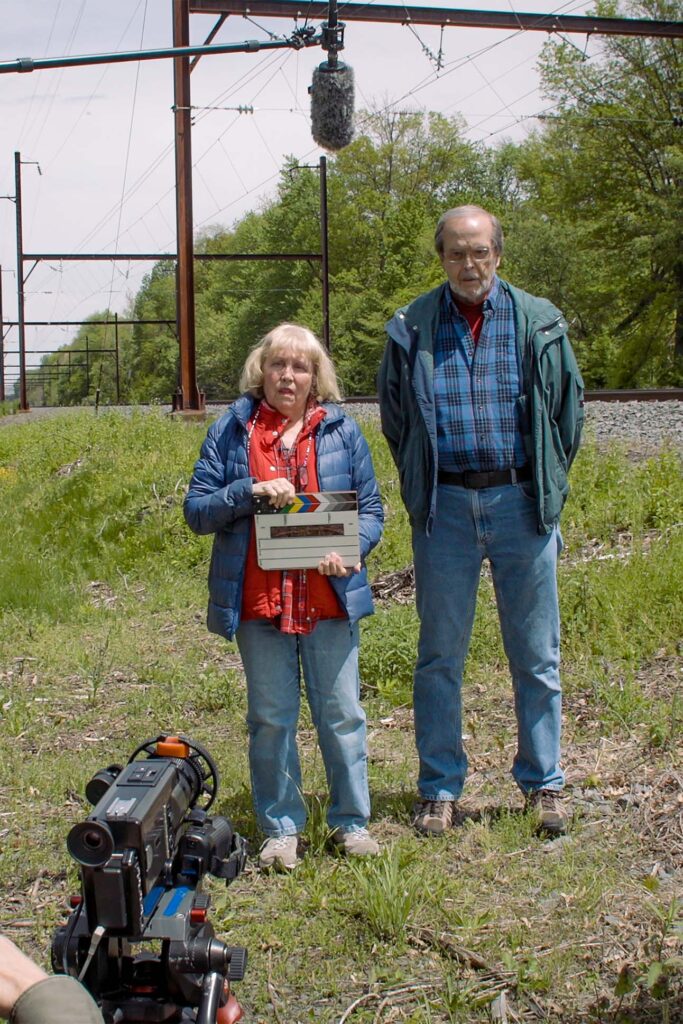Text by Barbara Platts
Images by Alexis Ahrling and courtesy of the filmmakers
Often referred to as Aspen’s “skiing boom” era, the 1960s and 1970s brought flocks of visitors to the mountain town in search of recreation, cultural events, and powder. The downtown streets were paved, lifts at Snowmass ski area began operation, the first official Aspen Alpine World Cup races were held, and the Aspen Art Museum opened its doors. It was also around the time that Ellen Hunt arrived in town from Los Angeles, recently separated from film producer Pancho Kohner.
Although many local arts organizations were getting started during that time, it wasn’t long before Hunt saw a gap in the community when it came to film. A champion of the arts, she was also aware of the many talented independent filmmakers not getting the attention and exposure they deserved. Together with co-founders Gail Holstein and Carol Rudolph, she organized the first Filmfest at Paepcke Auditorium in 1979, adopting the slogan “Independent by Nature” to reflect a focus on screening independently made and independently produced films.
In the early days, Filmfest was run entirely by volunteers, and many of the screenings and after parties took place in Hunt’s home until she started regularly working with venues such as the Wheeler Opera House. “Ellen never wanted it to be a festival that had a lot of notoriety,” says Susan Wrubel, executive and artistic director of Aspen Film since 2017. “It was more for the locals.”

Filmfest remains the organization’s flagship event, known for bringing a curated mix of acclaimed films from the international festival circuit, often before they’ve debuted in other U.S. markets. Hunt continued to run the organization until 1995, launching an additional two film festivals that went on to make Aspen a destination for emerging filmmakers and industry insiders alike. Shortsfest, a competitive short film festival in the spring, is one of only four Oscar-qualifying festivals dedicated exclusively to short film. In the winter, the end-of-year showcase Academy Screenings puts awards contenders in front of voting members of the Academy and other guilds as they descend upon Aspen for ski season.
After stepping down from her full-time director position, Hunt continued to serve Aspen Film in an advisor role for the next 25 years. When Wrubel took the helm of the organization, she recalls that Hunt seemed wary of her at first, but they became fast friends and remained close until Hunt’s passing in 2021. “Because of Ellen, a lot of doors were opened to me within this community,” Wrubel says. “I was really brought into the old guard from the beginning, which made a huge difference in my experience with the organization.”


In the time since Wrubel came onboard, Aspen Film has rounded out its seasonal programming with Summer of Cinema, when it partners with other organizations in the valley to host a variety of screenings in the summer months, and Indie Showcase, a monthly independent film series. Wrubel has also steadily worked to secure a dedicated venue for the organization’s year-round film screenings and educational programs. That effort culminated this year in the recent purchase of the Isis Theatre in downtown Aspen, where Aspen Film has hosted festivals and other events since the organization’s infancy.
To this day, independent cinema is central to Aspen Film. In selecting the more than 200 films it screens throughout the year—a task that takes Wrubel to festivals around the country and beyond, from Sundance and Tribeca to Toronto and Cannes—Aspen Film isn’t looking for big blockbuster hits. Even the larger titles Wrubel brings in tend be independently made or produced, often by up-and-comers in the industry. Shortsfest has long showcased the work of filmmakers who went on to high-profile careers in Hollywood, including Destin Daniel Cretton (of recent Marvel Studios fame) and Jason Reitman (Thank You for Smoking, Juno, Up in the Air).
Continuing this tradition of spotlighting filmmakers early in their careers, Aspen Film is doubling down on its efforts to cultivate young talent throughout the Roaring Fork Valley. “It’s a beautiful place we live, and a lot of the energy is focused on getting kids skiing and outdoors,” says Erin McVoy, operations and production director at Aspen Film. “But there are a lot of kids who that stuff doesn’t resonate with, and being able to connect them to the arts and tell their stories in different ways is really exciting.”
Tasked with reviving Aspen Film’s youth programs after they were put on hold due to the pandemic, McVoy started with launching the inaugural Film Camp: a week-long program in which local teens learn about filmmaking by producing Aspen-centric short films. McVoy worked with the Colorado Office of Film, Television and Media and Colorado Film School in Denver to plan the program and hire experienced teachers to lead it, debuting the camp in the summer of 2021. The program grew to two weeks in 2022, and next year, Aspen Film hopes to further expand the program downvalley.
The organization further leveraged its industry resources in fall 2022 by piloting a six-week film seminar in partnership with Bridges High School in Carbondale and an instructional series in which students conduct on-camera interviews with visiting filmmakers during Aspen Film’s annual festivals. Both programs were conceived with the goal of developing them into scalable, year-round offerings.
And McVoy and the rest of the team at Aspen Film are just getting started. They plan to continue deepening relationships with schools in the area to grow programming for local youth. “Hopefully we’re going to generate a future Academy Award winner out of this valley,” she says.






